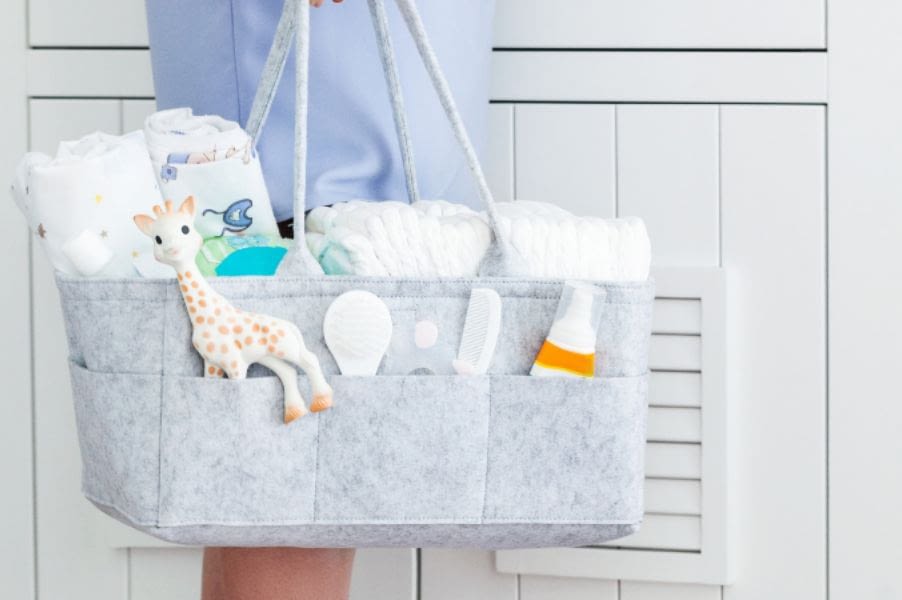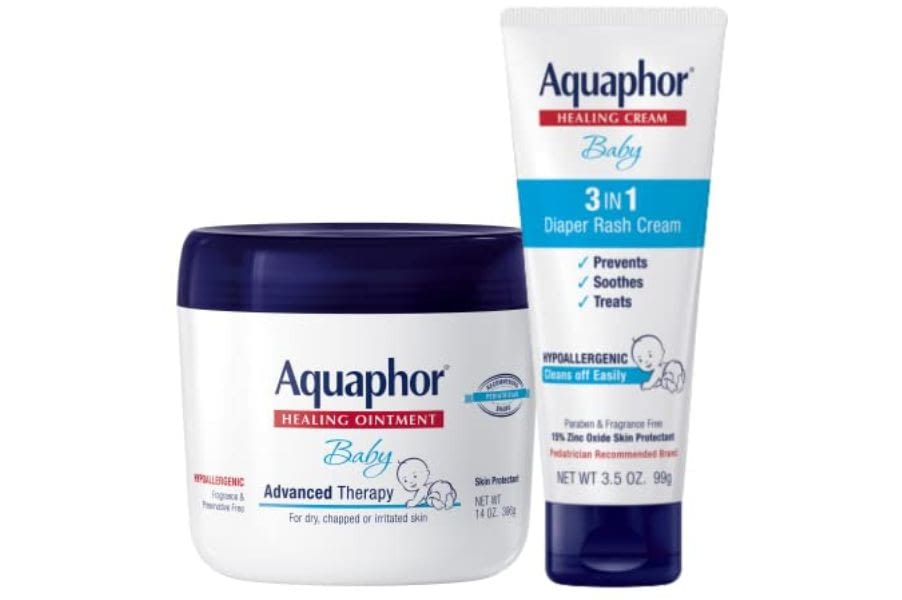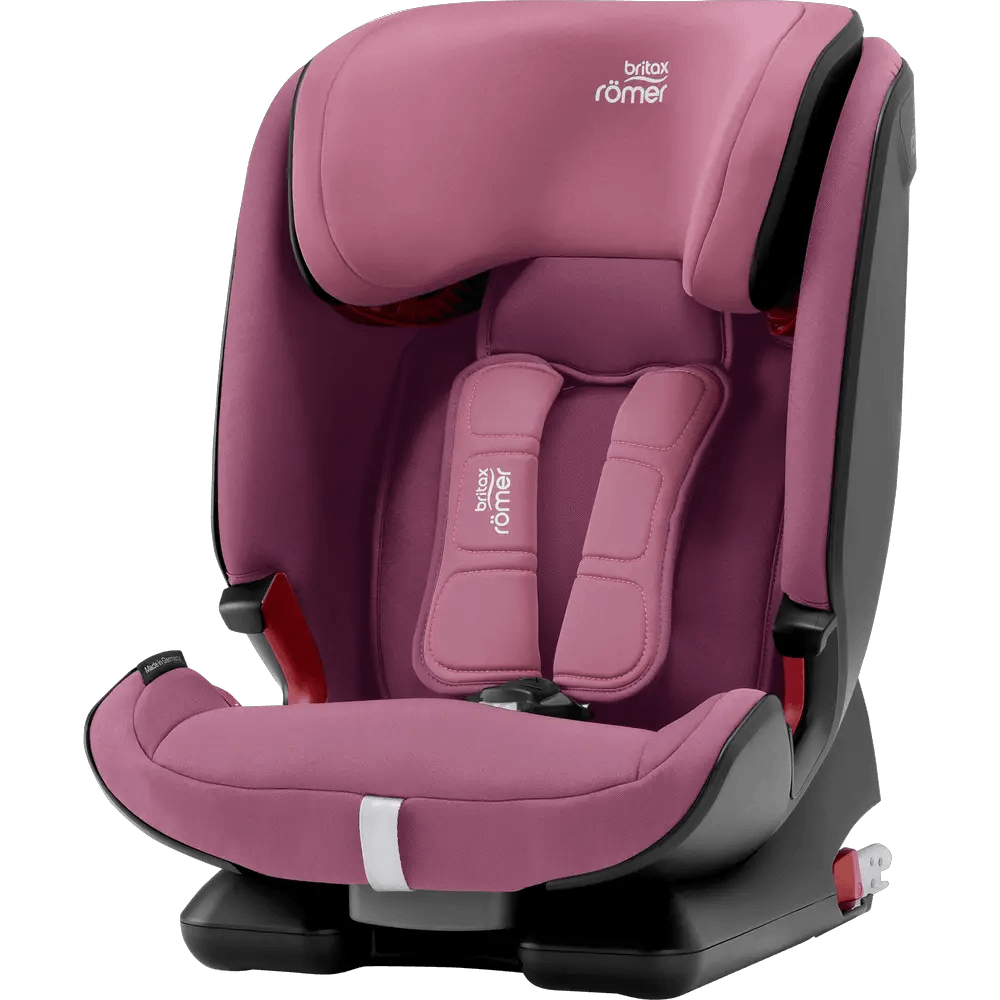As a parent, there’s nothing more aggravating than discovering your baby’s diaper has leaked while they’re sound asleep. Not only does it disturb their rest, but it also means added cleaning up for you.
Overnight diaper leaks can be expected and frustrating, but fear not! In this comprehensive guide, we will explore 13 practical ways to help you how to prevent diaper leaks at night and ensure a restful night’s sleep for you and your baby.
Related: When to Switch From Diapers to Pull Ups?
13 Effective ways: How to prevent diaper leaks at night?
- Choose the right size diaper.
Select the right size diaper for your growing baby as their needs change. If you notice diapers leaking up front, sagging in the back, or leaking out of the sides may be caused by a too-small diaper.
If your baby’s diapers often leak up front or around the legs, try going up one size bigger to avoid this problem. Conversely, if the diaper is too large, it may not fit snugly around the legs and waist, leading to leaks. Regularly check your baby’s weight and adjust the diaper size accordingly.
- Use double diapers
For extra protection at night, try using two diapers instead of one. Double diapering involves putting on two diapers, one over the other. Start with a regular diaper and then put an overnight diaper on top to midnight leaks. This will help absorb more liquid and form a better barrier against any accidents occurring in the middle of the night.
- Change Diapers Before Bed
Changing your baby’s diaper right before bed can significantly reduce the risk of diaper leaks overnight. Aim to change your baby’s diaper at least every 2-3 hours before sleep or whenever it feels wet or dirty.
A fresh diaper with optimal absorbency will better handle the overnight urine output. Make it a bedtime routine to ensure a dry and leak-free night.
- Opt for Overnight Diapers
Investing in best overnight diapers can make a significant difference in preventing leaks. These diapers are designed with enhanced absorbency and better leak protection to handle larger amounts of urine throughout the night. Nightime diapers offer a higher capacity and provide a secure fit, reducing the chances of leakage.
Related: Pull Ups vs Diapers: Which is Best for Your Child?
- Use waterproof sheets
Protect your bed from unexpected accidents with waterproof sheets or covers on bedsharing mattress. You’ll wake up to a fresh and clean bed instead of spending time cleaning up a messy disaster of midnight leaks. Invest in a simple solution to make your life easier and more comfortable.
- Encourage Back Sleeping
Promote back sleeping for your little one as it aids in keeping the diaper properly positioned and minimizes the chances of leaks.
- Boost absorbency with diaper Inserts.
Diaper inserts, also known as boosters or doublers, are absorbent pads that can be added to the diaper to increase capacity. These inserts are handy for heavy wetters or during long stretches of sleep. Place the insert inside the diaper for an additional layer of absorbency, reducing the likelihood of diaper leaks overnight.
- Make sure the diaper is snug.
To avoid leaks, it is vital to position the diaper correctly. Before bedtime, ensure the diaper fits snugly around your baby’s legs and waist, striking a balance between a comfortable fit and not being too tight. An adequately fitted diaper is key in containing leaks and maintaining your baby’s dryness.
- Use diaper covers
Consider adding a waterproof cover to protect against leaks if you’re using cloth diapers and experience cloth diaper leaks at nightime.
- Limit the liquids
Try to limit the amount of liquids your baby consumes before bedtime. Instead, ensure they are adequately hydrated throughout the day and gradually reduce the intake in the evening. It will help reduce the risk of diaper leaks and ensure your child stays comfortable and dry overnight.
- Consider Cloth Diapers
Cloth diapers are an eco-friendly and cost-effective alternative to disposable diapers. They can also provide a better fit, reducing the chances of leaks. Cloth diapers often come with adjustable snaps or Velcro closures, allowing you to customize the fit according to your baby’s size. Additionally, cloth diapers are more breathable, reducing the likelihood of diaper rashes.
- Use Diaper Rash Cream Sparingly
Protect your baby’s delicate skin from irritation with diaper rash cream, but don’t compromise the diaper’s absorbency. A thin layer of cream is enough to keep your little one comfortable and dry. Avoid applying excessive amounts that could impact the effectiveness of the diaper. Keep your baby happy and healthy with our simple tips.
- Check for Diaper Damage
How to prevent diaper from leaking overnight? Regularly inspect the diapers for any signs of damage or wear. Elastic bands that have lost their stretch or torn lining can compromise the diaper’s ability to contain leaks. Replace damaged diapers promptly to maintain their effectiveness.
Following the proper measures guarantees that your baby remains dry and comfortable throughout the night.
Common Reasons Your Baby’s Diaper At Night Might Be Leaking
Diaper leaks can frustrate parents, leading to messy cleanups and disrupted sleep. Understanding the common reasons behind diaper leaks can help you troubleshoot and prevent them from happening. Here are some potential causes to consider:
- Poorly fitting diaper – Diapers that are too loose or too tight can cause leaking. Choose the right size and adjust the fit as your baby grows.
- Incorrect Diaper Size: Leakage often occurs when using an ill-fitting diaper size.
- Overstuffing – Too much absorbent material, such as extra inserts or prefolds, can lead to leaking. Be sure not to add more than necessary.
- Not changing diapers often enough – Babies should have their diapers changed every two to three hours (or as needed), so leaking can occur if they are not being changed frequently enough.
- Wearing the same diaper too long – Similar to not changing the diaper often enough, wearing the same diaper for more than four hours at a time can cause leaking due to increased saturation of liquid and urine in the material.
- Using an old or worn-out diaper – Like any other clothing item, diapers need to be replaced after a few months of use if they become worn or stretched out, as this can reduce their absorbency capabilities and lead to leaks.
- Not removing solid waste promptly – It is essential to promptly eliminate solid waste to prevent any potential leakage and ensure a secure diaper fit.
- Diaper rash or skin irritation – Skin irritation or open sores can allow liquid and urine to escape from the diaper, leading to leaks.
- Baby’s diet – Some babies are more prone to loose stools if they have specific sensitivities or allergies, which can lead to additional leakage.
- Absorption Capacity: Some babies are heavy wetters, producing more urine. If your baby’s diaper doesn’t have enough absorbency to handle its output, leaks are more likely to occur. Consider switching to diapers specifically designed for overnight use or those with enhanced absorbency.
- Tummy Sleeping: Babies who sleep on their tummies may experience more diaper leaks overnight. When they are in this position, urine can pool at the front of the diaper, increasing the chances of leaks. If your baby sleeps on their tummy, consider using a diaper with extra absorbency in the front or try positioning the penis downwards for boys.
- Compression Leaks: As your baby becomes more active and moves around, the diaper may experience compression leaks. When pressure is applied to the diaper, such as when your baby sits or crawls, it can cause the urine to escape through gaps or leg openings.
- Temperature and Humidity: Extreme temperatures or high humidity can impact the diaper’s effectiveness. Babies tend to sweat more in hot and humid weather, making the diaper feel less absorbent.
- Wicking or Poor Quality Diapers: Some diapers may have inadequate lining or poor construction, leading to wicking, where moisture is drawn out of the diaper and onto your baby’s clothes. This can give the impression of a leak, even though the diaper is not saturated. Opt for high-quality diapers from reputable brands to minimize wicking issues.
Additionally, ensuring you’re using the correct type of diaper for your baby – such as cloth or disposable – can help prevent diaper leaking at night issues. If you’re still having trouble, consult with your pediatrician for advice.
Conclusion: How to prevent diaper from leaking overnight?
Following these steps can help ensure your baby is dry and comfortable during their sleep and reduce the risk of irritating skin rashes caused by leaking diapers. However, you still have difficulty finding a solution for you and your baby. In that case, talking to your pediatrician or a local healthcare professional for further assistance may be helpful.
Preventing diaper leaks at night is a common concern for parents, but precautions can minimize it. Remember to choose the appropriate size, opt for overnight diapers, and ensure proper placement.
Double diapering and using inserts can boost absorbency, while managing fluid intake and changing diapers before bed can also make a difference. Cloth diapers offer an alternative solution; checking for diaper damage regularly is crucial. By implementing these tips, you can enjoy peaceful nights with your baby, free from the hassle of diaper leaks.
Parents Also Ask
How to prevent diaper leaks boy?
To prevent diaper leaks for boys, follow these steps:
1. Ensure proper positioning of the penis downwards when putting on the diaper.
2. Ensure the diaper is snug around the legs and waist, providing a secure fit.
3. Change the diaper frequently to prevent overfilling and potential leaks.
4. Consider using overnight diapers or inserts with extra absorbency for added protection during nighttime.
Why does my baby diaper leak out the back?
Leaking in the back of a diaper typically indicates that it is either too small for your baby or needs to be changed more often. If your baby’s diaper has become soiled, bacteria and moisture can leak through the leg holes and onto clothing or bedding.
1 Visit today





